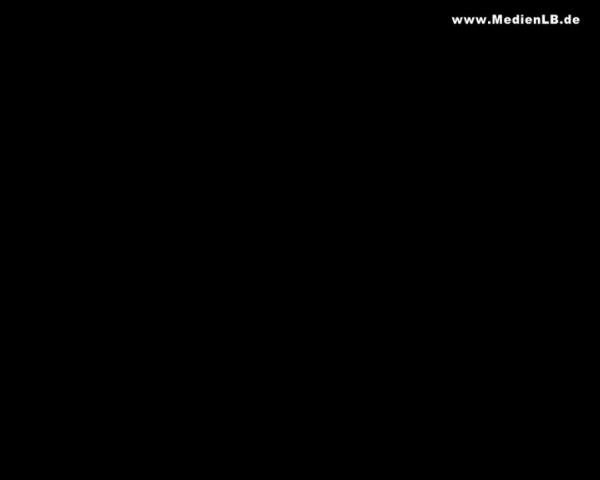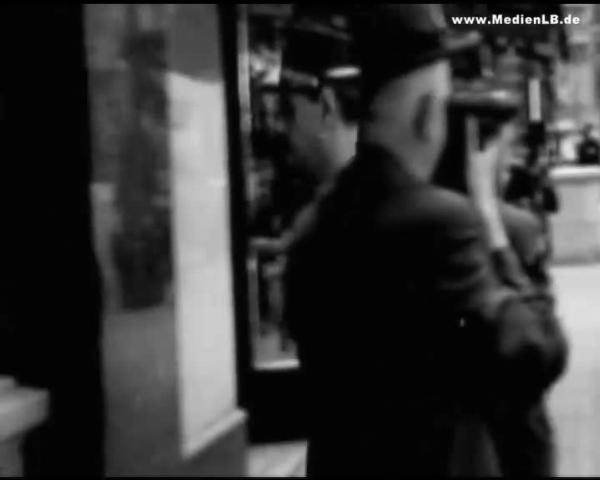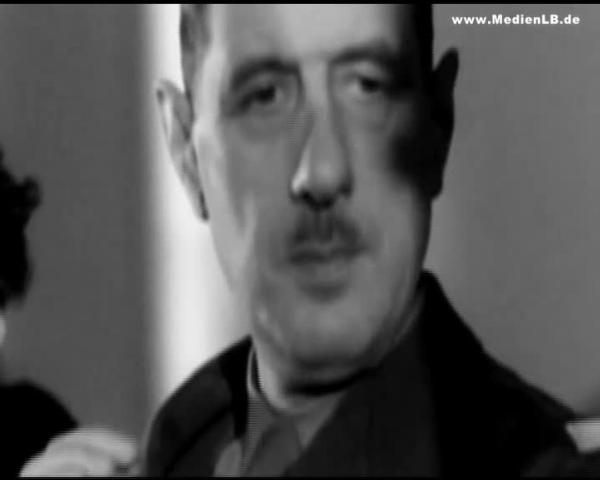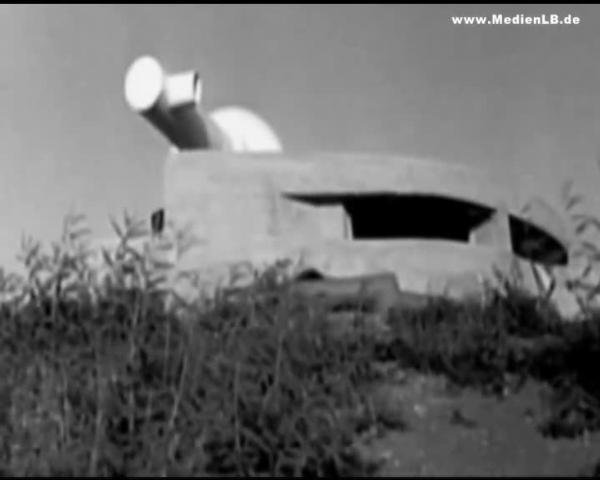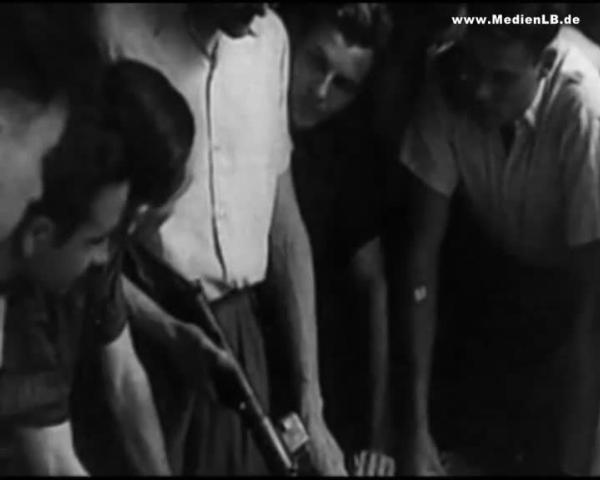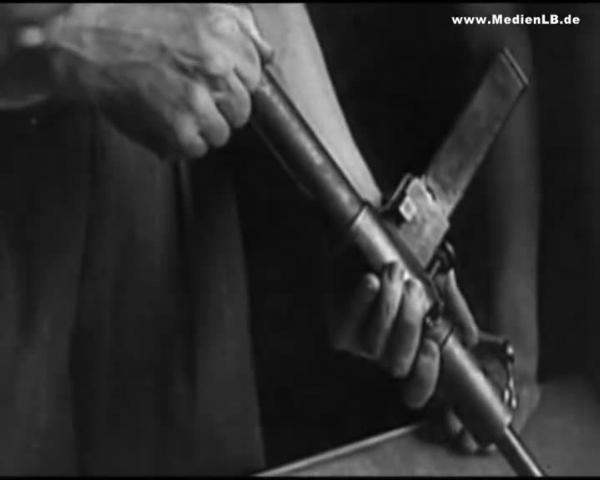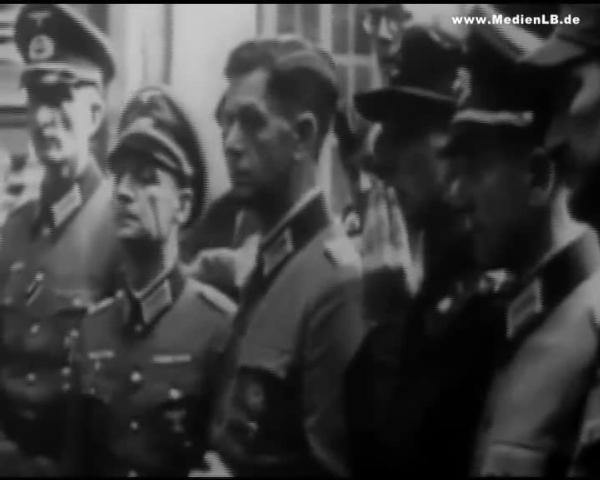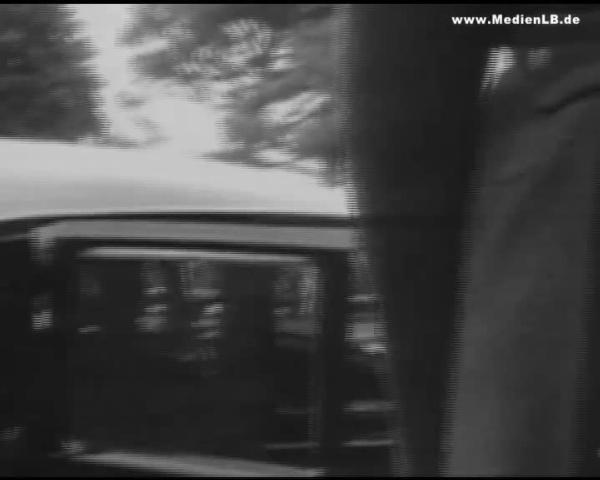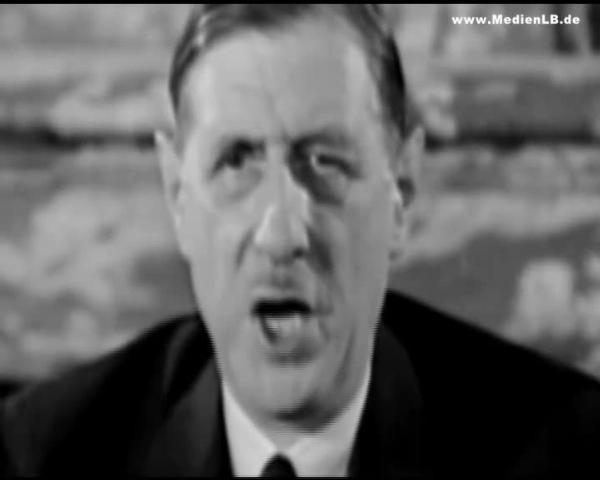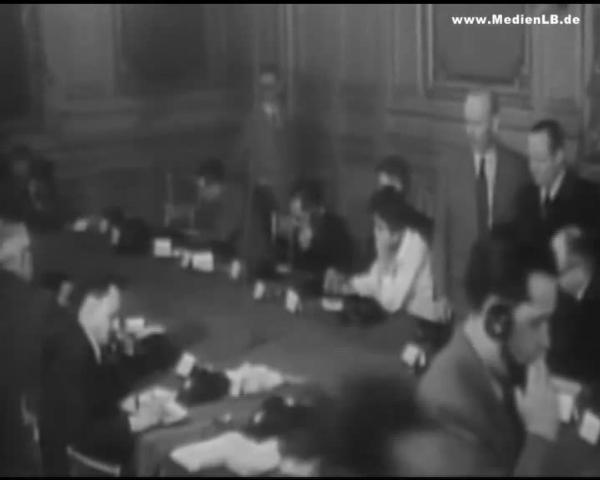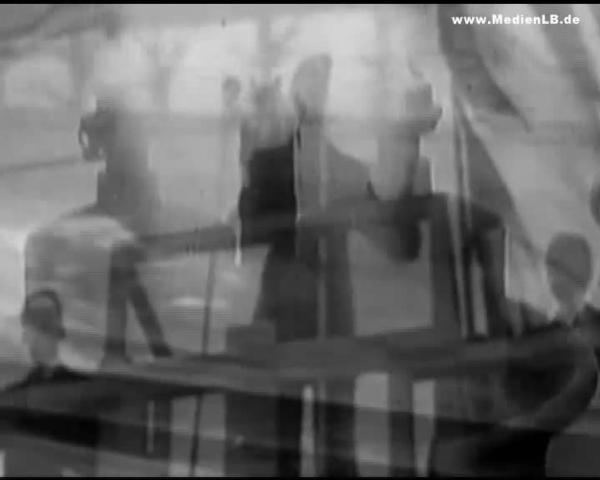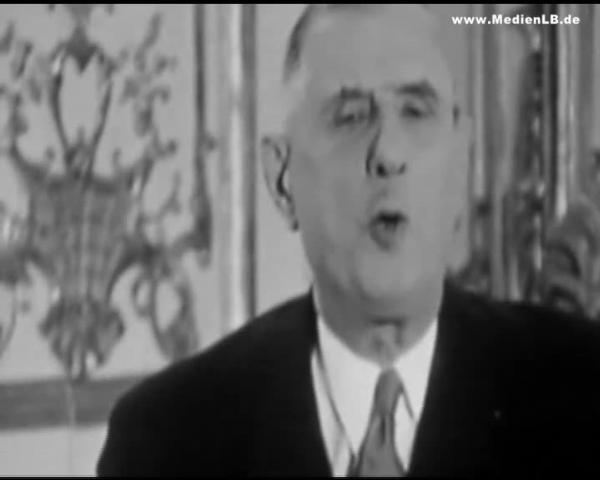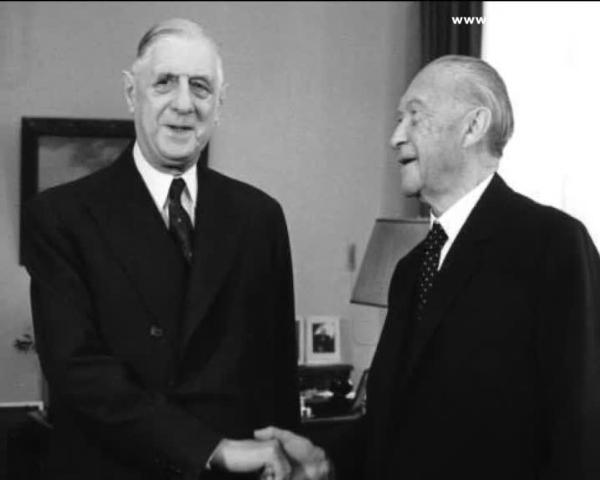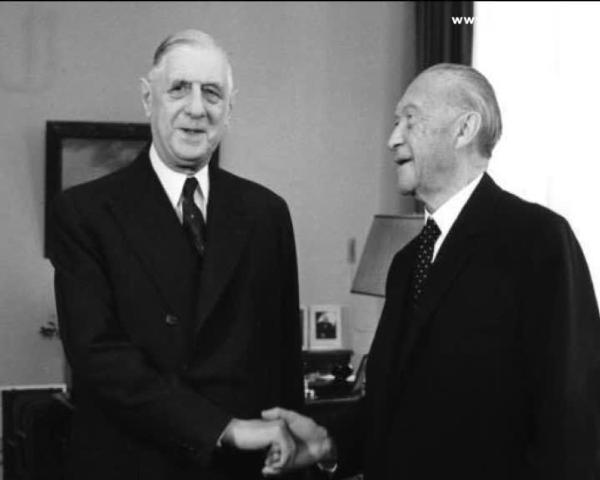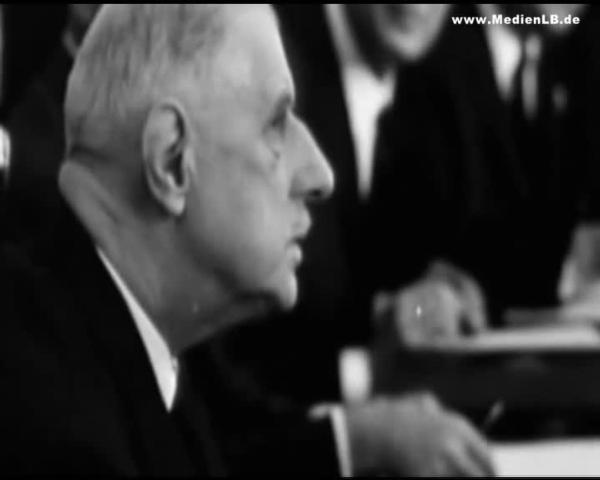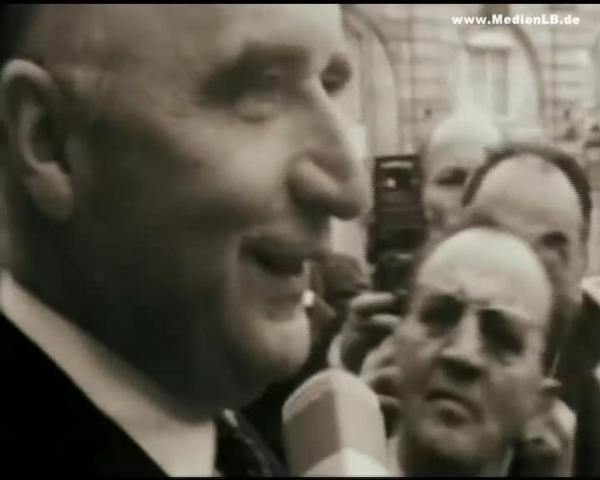Charles de Gaulle
Der letzte große Staatsmann

Charles de Gaulle - The Last Great Statesman

18th June 1940: De Gaulle talks to his compatriots from the BBC studios in London: »Our defeat is not final. ( …) I, General de Gaulle, currently in London, invite the officers and the French soldiers who are located in British territory [… ]to put themselves in contact with me (…) Whatever happens, the flame of the French resistance must not be extinguished and will not be extinguished.« The news was broadcast in France at 7 pm. It did not change anything in the plans of the Vichy regime under Marshal Pétain: On 22nd June, the ceasefire between the German Reich and France was signed in the same place, near Compiègne, where also the armistice of 1918 had been ratified. As a late revenge for the Versailles peace treaty, imposed 22 years before, Hitler staged the proceedings in the very railway car in which the Germans had signed their surrender in 1918. The treaty included, among other things, the division of France into a north-western part under German military administration and an unoccupied southern part with Vichy as the seat of the French government. A few days after the conclusion of the ceasefire, de Gaulle founded the Free France Committee in London, proclaimed the continuation of the war and gathered volunteers for the Free French Forces. Winston Churchill recognised him as the leader of the Free French on 28th June. The Vichy regime, however, had de Gaulle condemned to death for treason in absentia in August 1940. De Gaulle went to Dakar in French West Africa, gathered all rebel forces around him and went to war against Germany and the Vichy regime. His calculations did not work out. His attempt to conquer the West African metropolis Dakar, which remained loyal to the Vichy regime, in 1940 ended in a fiasco. De Gaulle was disappointed that the massive defection of soldiers of the Dakar garrison, which was loyal to Vichy, failed to materialise and the liberators were forced to retreat. The American President Franklin D. Roosevelt disapproved of the French civil war and considered de Gaulle a dangerous man aiming at dictatorship. De Gaulle’s hardest battle of the war would have to be fought not against the Germans but against the French from the other side. Defeated on the military level, he tried to re-establish himself on the political level. Head of state Philippe Pétain met Reich Chancellor Adolf Hitler to talk with him about collaboration. At the conference of the representatives of Free France and the envoys of the French colonies in Brazzaville, the capital of French Equatorial Africa, de Gaulle promised a fundamental reorganisation of the relations between »metropolitan France« and its colonies. His goal was to get the African colonies more seriously involved in the fight for the liberation of France. »As there is no real French government anymore because Vichy is unconstitutional, we need a new power to take over the task of leading the French war efforts.« De Gaulle founded the »Council of Defence of the French Empire« and claimed the sovereignty that Pétain had handed over to Hitler. Meanwhile, some French colonies had joined his side. Churchill avoided acknowledging the »Defence Council« officially. The British prime minister was not interested at all in the General’s transformation into a politician who claimed to speak in the name of France and to make decisions. »I am France!«, Charles de Gaulle declared and demanded to be informed on all operations concerning the French territories. In September 1941, de Gaulle founded the »National Committee of the Free French« as the precursor of an exile government.

